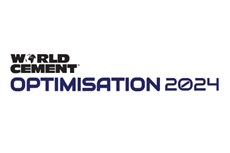Aggregate Industries promotes safety in construction industry
Published by Lucy Stewardson,
Editorial Assistant
World Cement,
Aggregate Industries is calling for more to be done to drive road safety forward in the construction industry. This comes as Britain’s road traffic has reached record levels, and heavy goods vehicle (HGV) traffic has been identified as the second fastest growing traffic type in recent years.
Official statistics have estimated that 327 billion vehicle miles were travelled on UK roads between July 2017 and July 2018. This is a 2% increase on the last two years. It has also been estimated that HGV traffic makes up 17.2 billion of those vehicle miles. These numbers have brought fresh safety concerns, due to the fact that more vehicles on the roads and more traffic means increased risk. Reports have estimated that nearly 25% of injuries that are caused by crashes with HGVs are fatal or serious, as compared to a 13% car crash average. 34% of drivers have reported having a crash or a near miss with a lorry.
The company has stated that the construction industry is fast paced, with delivery frames tight, volumes high, and pressure great. For businesses that are managing vast vehicle operations or haulier networks under increasing deadline pressures, this means that it is more important than ever to pay due diligence to vehicle safety protocols.
“It has never been more important for construction companies to ensure that all vehicle operations, whether in-house or outsourced, are designed to be as rigorous and safe as possible,” said Ben Young, Head of Road Logistics at Aggregate Industries. “At Aggregate Industries, for example, we operate a robust approach to the enrolment of our 1000-plus drivers, coupled with a holistic maintenance programme. Our approach to our ongoing commitment to health and safety is just as diligent, whereby we have a team of eight expert compliance managers who work with our hauliers, covering the length and breadth of the country, in order to promote best practice. This includes advice on key safety aspects that are unique in our sector; for example, we recently held sessions on handling frozen aggregate carefully to mitigate the risk of tip-overs, as well as how to limit the risk of slips and trips during the severe winter weather.
“We also use a state-of-the-art telematics system to monitor the driving behaviour and styles of our hauliers on a daily basis – picking up everything from mileage, speed, and fuel consumption. Here, certain red flags, such as lots of harsh braking, erratic starting and stopping, or even a sudden spike in fuel consumption can signal issues that must be addressed. It can help us to spot best practice within our haulier community and ensure that we are doing all we can to encourage safety on the roads. It is dedication to going the extra mile that inspires customer confidence, especially in an area as important as road safety.”
On top of monitoring what is happening on the road through the use of telematics, Aggregate Industries also adheres to standard vehicle specifications, which have been designed to protect road users externally and which hauliers are expected to adopt. For example, state-of-the-art side scanners are able to detect when a cyclist or pedestrian comes close to the vehice, alerting the driver accordingly. In addition, as an area of high risk for cyclists, when a driver is preparing to turn left, an alert will be sounded for those outside the vehicle.
At a time with ambitious new build targets, the company has stated that the pressure is on the construction industry to deliver. However, it does not believe that this should be done to the detriment of safety. With growing logistical needs, as well as increased traffic, the company has stated that it is more important for businesses, even when outsourcing transport operations, to make sure they are adopting best practice at all times, and putting safety firmly in the driving seat.
Read the article online at: https://www.worldcement.com/europe-cis/21012019/aggregate-industries-promotes-safety-in-construction-industry/
You might also like
Rohrdorfer starts ethylene production from carbon dioxide
Following a test phase, production is to be scaled up to an industrial scale, thereby establishing a seamless CO2 circular economy.


